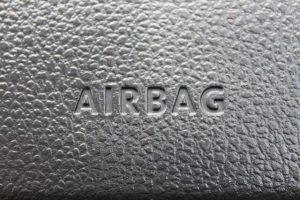
A recall of Takata airbags has now become one of the most extensive and expansive recalls in the history of automobiles. According to Consumer Reports, safety issues with the Takata airbags can affect cars manufactured over more than a decade, from 2002 to 2015.
Nineteen car manufacturers have joined in issuing the recall. If your vehicle was manufactured by any of the following companies, you might need to get it checked.
- Chrysler
- Mitsubishi
- Honda
- Toyota
- McLaren
- Ferrari
- Audi
- Tesla
At Morris Bart Attorneys at Law, we are dedicated to providing injured people with the compensation they deserve. If you were harmed by a Takata airbag, you might be entitled to financial compensation for both your monetary damages (such as medical expenses) and the effects that the injury has had on your emotional and mental state.
Call our Takata airbag claim attorneys today at 800-537-8185 to schedule your FREE consultation with a member of our team. You can also schedule your appointment by filling out the form on our contact page.
The Problem With Takata
In 2001, Takata made the decision to switch to using ammonium nitrate as the propellant in its airbags. Before this, it used a safer, more stable compound known as guanidine nitrate and tetrazole, which is the industry standard used by the rest of the airbag manufacturing world. The reason the company made the switch is that ammonium nitrate is cheaper.
Unfortunately, ammonium nitrate is unstable. It can explode, propelling the airbag, when it is not triggered by a car wreck. As it ages, the compound is also known to degrade, especially in climates that have high humidity. The compound’s degradation can cause the metal inflation device inside the airbag to explode without warning, sending shrapnel flying into the interior of the vehicle.
Takata switched to this unstable and potentially dangerous compound, despite the existence of safe technology used by all other manufacturers. The company knew of the risk and proceeded anyway in order to save money. This is a clear case of product liability, and the attorneys at Morris Bart are dedicated to helping people injured by these defective airbags get the compensation they deserve.
For a free legal consultation, call 800-537-8185
Takata’s Cover Up Was Unearthed by the New York Times
The New York Times exposed Takata’s airbags’ fatal flaw in a bombshell report in 2014. In the report, it was revealed that Takata had conducted tests to confirm the inherent dangers in the company’s airbags as early as 2004. Yet, the company continued to hide this information about increased risk for the next decade.
Missouri University of Science and Technology explosives engineering expert Paul Worsey was quoted in the New York Times. He revealed a startling opinion that ammonium nitrate is more suited for mining demolitions and other large-scale explosions than it is for use in a safety device.
Since the Takata bags were cheaper, and due to the fact that Takata purposefully hid information about their inherent dangers, many manufacturers began to adopt them into their designs. Now, one in every seven cars in the United States contains a Takata airbag that uses this highly risky compound.
The Recall’s Extent
The beginning of the recall only involved a total of six vehicle manufacturers. In October of 2016, Toyota also joined the fray. By December of that year, a total of 34 vehicle makes were recalled and the National Highway Traffic Safety Administration estimated that more than 70 million vehicles would be subject to the recall by the end of 2020.
Takata listed 1.7 million additional vehicles on the recall list in January 2017, in keeping with the predictions by the NHTSA. As of December 2016, injuries due to the Takata airbag defects have reached 200, with 11 confirmed deaths in the United States alone. It is obvious that Takata has a lot to answer for.
Click to contact our personal injury lawyers today
Airbag Replacement Concerns
The recall’s progress is significantly hampered by a lack of supply. The ultimate goal is to replace all ammonium nitrate airbags with the safer versions used by the rest of the airbag manufacturing industry. However, progress is slow because Takata does not have nearly enough airbags on hand to make all the replacements.
As a half-step, Takata is replacing older cars’ airbags with new ammonium nitrate airbags. This is because the compound gets more dangerous with age, so newer ones are a bit safer than older ones. The goal is for these to serve as a holdover until more non-ammonium nitrate airbags can be developed. Since humidity also affects risk of these airbags, vehicles that are older and are in humid areas are being serviced first.
The National Highway Safety Administration estimates that it might take Takata until 2023 to remove all the dangerous airbags from American roadways.
Find Out Whether You Are Affected by Takata Airbags
SaferCar.gov keeps a running list of vehicle makes and models that are subject to recall. Click the link to learn more about the Takata airbag safety recall and whether your car needs to be serviced.
Morris Bart Attorneys at Law is a personal injury law firm dedicated to helping clients get the compensation they deserve. If you have been injured, or if a loved one was killed, due to a Takata airbag, get in touch with our Takata airbag injury claims lawyers today.
Call our law office today at 800-537-8185 or fill out the form on our online contact page to schedule a FREE consultation with our attorneys. We’ll go over your case, your eligibility for compensation, and how we can help you get the recover you need.
Questions?Call 800-537-8185
to find a Morris Bart office near you.

